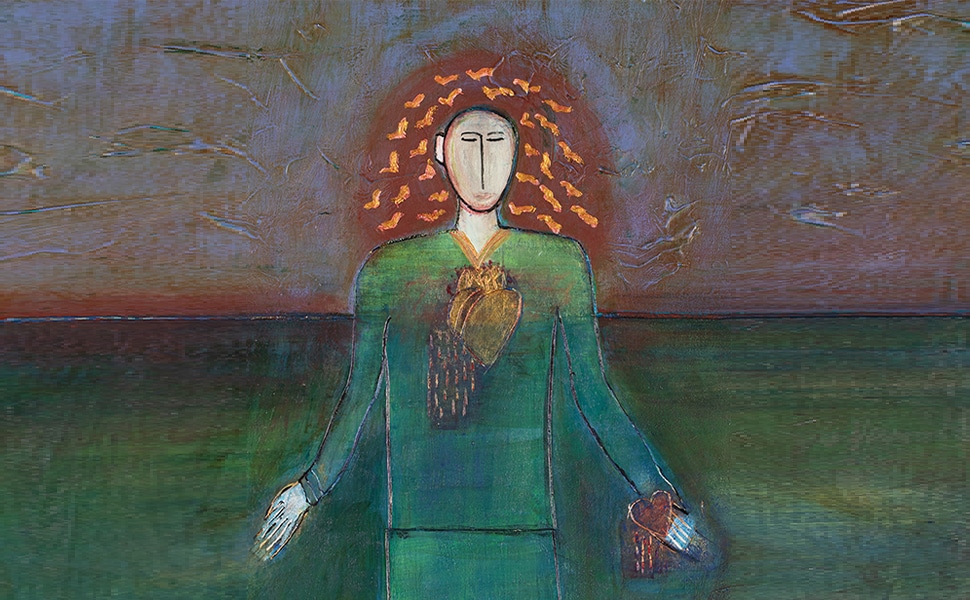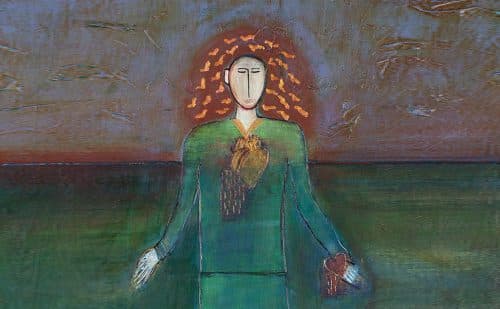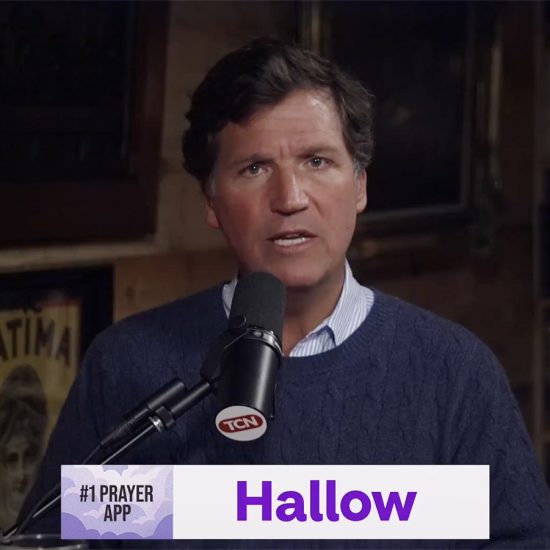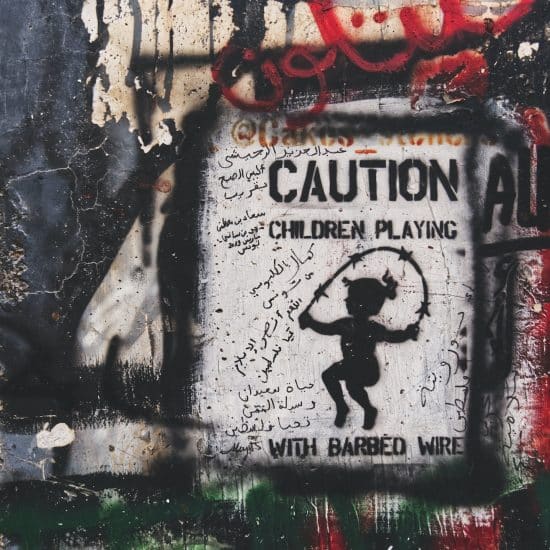

THE DESERT OF COMPASSION: Devotions for the Lenten Journey. By Rachel M. Srubas. Louisville, KY: Westminster John Knox Press, 2023. 179 Pages.
The Lenten season (as I write this review we are in the midst of that season) is rooted in the story of Jesus’ sojourn in the wilderness/desert. The wilderness/desert is a common theme in Scripture. Moses and Elijah both spend time in the desert, and in both cases, their desert experiences involved fleeing from difficult situations at home. Moses also led people through the wilderness to freedom. As for Jesus, according to the synoptic gospels, after his baptism, the Spirit led Jesus into the desert where he faced three tests that raised questions about his identity and his allegiance. “If you’re the son of God,” the tempter put to Jesus, then turn stones into bread. If you give me your allegiance I’ll give you the world to rule. Just submit to me. Of course, Jesus says no, despite the hunger and thirst that comes with a desert experience like this.

Robert D. Cornwall
Christians revisit the story of Jesus’ sojourn in the desert each year at Lent (at least those of us who follow the church year/liturgical calendar). We’re told in the Gospels that Jesus spent forty days and nights in the desert fasting and praying. When the fast ended, but before he took nourishment, the Tempter came and tested him. Traditionally, Christians find ways of emulating Jesus’s fast by engaging in some form of fasting, while devoting time to prayer and study. At least that’s the plan, whether we follow through or not. Many Lenten guides have been produced over the years. Some are very time sensitive, and thus used once. Others are designed to have a much longer shelf-life. Both kinds of guides are useful, but Rachel M. Srubas’s The Desert of Compassion is one of the latter kinds of guides. You can pick it up this year and again next year.
The Desert of Compassion is the work of Rachel M. Srubas, the pastor of Mountain Shadows Presbyterian Church (USA) in Tucson, Arizona. Serving as she does in southern Arizona, Srubas understands the meaning of the desert. It’s all around her. In creating this guide, Srubas draws on the images of the desert, which she knows so well, to provide the reader/spiritual seeker, with a rich devotional book that begins with Ash Wednesday and ends with the Triduum (Maundy Thursday, Good Friday, and Holy Saturday).
Srubas describes the book’s orientation as a journey through a desert guided by a “compass of compassion.” That compassion theme is present throughout the book. As we set out on this journey through the desert, Srubas offers a reflection each day of the week from Monday through Saturday that invites us to reflect on God’s compassion. Then on Sundays, she provides a “Sabbath Rest Stop” that introduces the following week’s theme. The devotion for each day includes a Scripture text followed by an interpretative piece in italics that she suggests is an “imagined divine voice” After these two pieces introduce the theme of the day we find a reflection on the day’s reading and closing prayer. Most reflections are approximately two and a half to three pages in length.
Srubas titles the first set of readings that run from Ash Wednesday through the first Saturday of Lent “Lent’s Early Days: Go to the Land that I Will Show You.” That title suggests something Abrahamic is about to take place. According to Srubas, the message here is that “Hard times convey a summons to the desert, where compassion flourishes.” Having established a direction in these earliest readings, when we begin the first full week, the theme is “Remove the Heart of Stone,” with the focus being on readings that speak to the theme: “In the human heart capable of feeling, compassion deepens.” In Week two — Reach out your hand — we consider the message that “Connecting with people wounded by life makes compassion possible” Then in Week three — “Stay Awake with Me” —she speaks of compassion requiring “distress tolerance, which practice strengthens.” In setting the theme for the week, Srubas writes that “if you’re wounded, you’re called to be healed; when you’re healed, you’re called to compassion for the wounded.” That is, our woundedness is the source of our compassion (p. 70).
We move to week 4 which focuses on “Your Whole Mind,” where Mindful awareness and thoughtful reflection foster wise compassion.” Here, in the context of a book focusing on the contemplative life, she reminds us that the life of the mind might not be everything, but it is nonetheless important—for we are to love God with our mind. We continue into week 5, where the theme is “Do not condemn” for “condemnation stymies grace, but compassion dismantles shame and fosters healing.” She notes that the word “condemn” essentially serves as a declaration of “Go to Hell” and “Hell is no place to live.” Therefore, she writes that she has devoted the Lenten journey and her life “to Jesus and his teaching that the kin-dom of God is at hand, here and now.” Therefore, our calling is to point toward God’s compassion (p. 121).
The book concludes with the reflections for Holy Week beginning with a Palm Sunday Rest Stop that introduces us to the reflections that follow. As we enter this final week of the journey Srubas reminds us that the “traditional Lenten practices of fasting, prayer, and giving to help impoverished people have always been intended to ground Christian’s spiritual lives in practical loving-kindness toward neighbors. When you act to alleviate a neighbor’s suffering without presuming to prejudge their worthiness of care, you do your part to realize God’s beloved community” (p. 148). She notes that in the final group of devotions for Holy Week, the readers will “consider compassion as a practical action that redresses neighbors’ suffering” (p. 149).
Holy Week, after the Palm Sunday Rest Stop, begins with a word for Holy Monday that speaks of the “thread of creativity.” The focus of this first reflection draws on the stories of Tabitha and Lydia. Regarding Lydia, the divine voice declares that Lydia seamlessly “interweaves her garment business with my mission of clothing the naked in beauty. When they are dignified, I am glorified.” She uses the program of Little Dresses for Africa as an expression of sewing as a form of Tikkun Olam” Pp. 150-151). We move from that reflection through Tuesday and Wednesday and finally to Maundy Thursday, where the theme is the washing of the feet. In this reflection Srubas notes that “compassion is not only a tenderhearted feeling. It’s more, even, than an ethical choice. At its most richly incarnate, compassion is a way of life that reverences living beings and acts to alleviate their suffering without fetishizing it” (p. 164).
The journey ends with the Triduum, the three days that run from Maundy Thursday through Holy Saturday. Here Srubas speaks a word that “through suffering and death, new life and compassion arise.” She closes the book with this word: “By the overflow of God’s loving-kindness, may you find you have been given all you need to live with compassion for yourself and for every living being.” (p. 169). The message is clear, the journey of Lent leads to compassion, which reflects God’s love. As we look around at the world, we see the need for compassion for ourselves and the entirety of creation.
For those looking for a daily devotional for Lent, Rachel Srubas’ The Desert of Compassion should be at the top of the list. It does seem as if Westminster John Knox Press produces excellent devotional resources each year. They can be revisited year after year or rotated, but they are always good. This book is no different. While this is designed to be used during Lent, in many ways the need for compassion is so great it could be used at any point in the year since the call for compassionate living will never go away, as it is the essence of God’s realm.
This review originally appeared on BobCornwall.com.
Robert D. Cornwall is an ordained minister in the Christian Church (Disciples of Christ). Now retired from his ministry at Central Woodward Christian Church (Disciples of Christ) of Troy, Michigan, he serves as Minister-at-Large in Troy. He holds a Ph.D. in Historical Theology from Fuller Theological Seminary and is the author of numerous books including his latest “Second Thoughts about the Second Coming: Understanding the End Times, Our Future, and Christian Hope” coauthored with Ronald J. Allen. His blog Ponderings on a Faith Journey can be found at www.bobcornwall.com.






